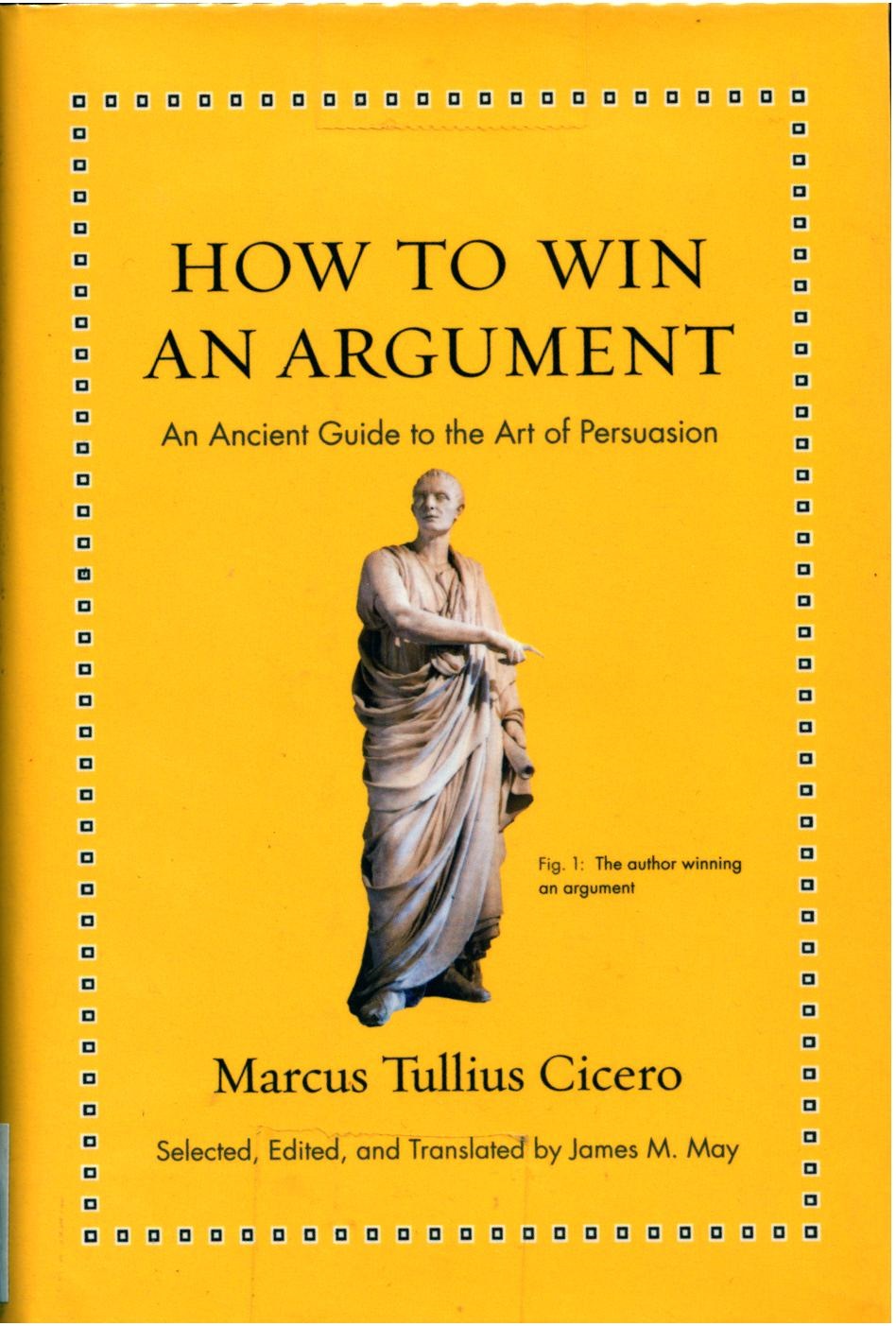
How to Win an Argument: An Ancient Guide to the Art of Persuasion
by Marcus Tullius Cicero
PA6307 .A2 M39 2016
New Arrivals Island, 2nd floor
It’s nice to know that some things never go out of style. Take Cicero. He was a Roman lawyer, statesman and consul and lived more than 2,000 years ago, yet he’s still regarded as one of the greatest orators of all time. St. Olaf Classics Professor, James May offers a tidy little package of Cicero’s works on the art of persuasion, which he selected, translated and edited.
Should you be so inclined, the editor has included the Latin texts in addition to his English translations. What I like best is the six-page “Ciceronian Cheat Sheet for Effective Speaking.” If you’re taking a dreaded public speaking class this term, you might consider bringing your new friend Cicero along with you to class so you can learn the art of persuasion from a master.
You can learn a bit more about Cicero in the Youtube video below. Or you can check to find copies of his works in Andersen Library.

Well, most writing does and should contain more persuasiveness than it currently does. But a big deal here is motivation.
From advertising clips, to the most distinguished texts, readers might desire: to feel good about selves, see selves as wiser smarter etc., than the crowd, one of an elite, suave but also properly modest and self-assured, Considerate but powerful when needed. Defending some values and condemning others, all impressively.
But a key motivation may be “not wanting to be fooled.” In my writing classes, I gave students two statements about fluroidation of public water supply. Both opposed it. First, a letter to editor which was a ranting illogical biased blast–and then a pamphlet sober, clean, reasonable-seeming, with many facts. They condemned the first, embraced the second.
BUT then I gave them a Consumer Union article on subject which totally blew the “reasonable” pamphlet out of the water, as just covert condemning of Big Govt. controlling us. Flustered they were indeed! “But can you believe anything at all?” they asked, now motivated. We explored that.
PC individuals will condemn my disturbing the Sensitive people today. But I still like another teacher’s approach when a class largely said they believed in astrology. Teacher took their birth-dates, then the next hour, distributed to each, their very own horoscope. Students read theirs, most agreed that “this is like I am.” Their astrolo-philia reinforced. Then the teacher told them to “exchange your own horoscope with others around you.” The whole class suddenly found out that all the copies were–the same…